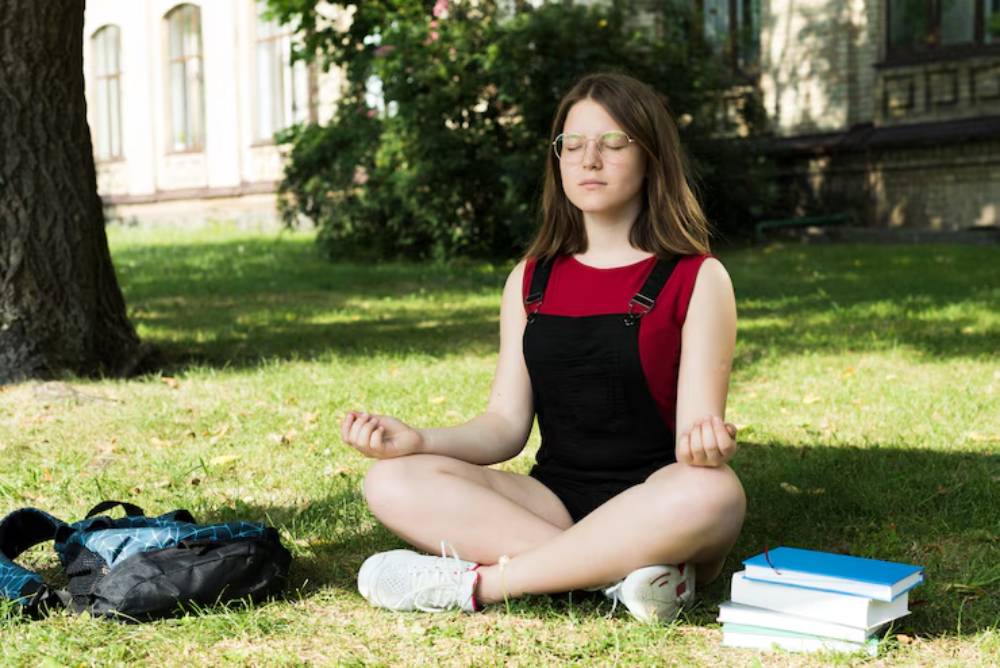
Avoiding Burnout During Exam Prep: Study Stress Management That Works
Exams are a major part of academic life. They demand focus, long hours, and plenty of mental energy. But here’s the thing – pushing too hard can backfire. If you’ve ever found yourself staring blankly at a book for hours or getting snappy over tiny things, you might have been dealing with burnout.
Burnout during exam prep is more common than most people realise. It’s not just about being tired; it’s about feeling emotionally drained, mentally foggy, and physically exhausted. The good news? You can avoid it.
This blog walks you through practical, research-backed tips to prevent burnout and keep your study sessions energised and effective. Whether you’re cramming for finals or pacing yourself over a revision timetable, you’ll find ways to manage stress without losing your spark.
Understanding Exam Burnout
What Exactly Is Burnout?
Burnout is a state of chronic stress that leads to physical and emotional exhaustion, detachment, and a sense of ineffectiveness. In students, it often stems from long study hours, poor sleep, unrealistic expectations, and pressure to perform.
Key symptoms include:
- Constant fatigue
- Loss of motivation
- Increased irritability
- Trouble concentrating
- Feeling overwhelmed or hopeless
Why Exam Periods Are Prime Time for Burnout
The weeks leading up to exams tend to involve late nights, less social interaction, poor nutrition, and constant self-evaluation. Combine that with fear of failure and a competitive academic environment, and it’s a perfect recipe for stress overload.
Studies show that up to 50% of university students experience academic burnout at some point. That’s a worrying statistic — but it also means you’re not alone, and more importantly, there are ways to cope.
How to Prevent Burnout While Studying
1. Build a Realistic Revision Schedule
A major cause of burnout is trying to do too much in too little time. That’s where smart scheduling comes in. Rather than marathon sessions, aim for short, focused blocks of study with regular breaks.
Try the Pomodoro technique:
- Study for 25 minutes
- Take a 5-minute break
- Repeat four times, then take a longer break
Use your calendar or a planner to break revision into daily goals. Seeing your progress helps you stay motivated.
2. Prioritise Quality Sleep

Sleep is non-negotiable. It helps consolidate memory, improve concentration, and stabilise your mood. Skipping sleep for study might feel productive, but it’s a false economy.
Tips for better sleep:
- Stick to a consistent sleep schedule
- Avoid screens 1 hour before bed
- Try meditation or breathing exercises to unwind
3. Fuel Your Brain With the Right Food

Nutrition directly impacts energy and focus. When you’re living on caffeine and snacks, your body and brain can’t function at their best.
Keep energy steady with:
- Whole grains and complex carbs
- Protein-rich snacks like nuts or yoghurt
- Hydration (aim for 6-8 glasses of water a day)
4. Exercise for Mental Clarity
Exercise isn’t just about physical health – it’s a proven stress-buster. Even a 20-minute walk can boost your mood and help reset your mind.
Easy ways to add movement into your day:
- Stretch during breaks
- Try short YouTube workouts
- Walk while listening to revision notes
5. Say No to Multitasking
Multitasking may feel efficient, but it actually reduces productivity and increases stress. Focus on one task at a time. Turn off notifications and study in a distraction-free environment.
6. Set Boundaries With Study Time
It’s tempting to study from morning till night, but this often leads to diminishing returns. Treat study like a job: have start and end times, and respect your time off.
Use that time for things you enjoy — hobbies, family, friends, or just doing nothing. Your brain needs space to recharge.
7. Recognise and Manage Negative Self-Talk
“I’ll never be ready.” “I’m going to fail.”
Sound familiar? These thoughts are toxic and fuel burnout. Replace them with realistic affirmations:
- “I’m doing my best, and that’s enough.”
- “One step at a time.”
Cognitive behavioural techniques (CBT) can help shift these patterns. Journaling and talking things through with someone you trust also helps.
8. Use Mindfulness to Stay Present

Mindfulness practices can reduce anxiety and help you focus better. Even 5 minutes a day can make a difference.
Simple practices include:
- Deep belly breathing
- Guided meditation apps like Headspace or Calm
- Mindful walking (paying attention to sounds, sights, smells as you walk)
9. Seek Support Early
Don’t wait until things are unmanageable. If you’re feeling overwhelmed, talk to a tutor, a friend, or a counsellor. Most schools and universities have student support services — use them.
Also, consider study groups. Studying with peers can break isolation and keep you accountable.
Signs You’re Nearing Burnout (and What to Do)
If you’re ticking multiple boxes below, it’s time to take a step back:
- You dread studying every day
- You’re constantly tired, no matter how much you sleep
- You feel like you’re not retaining anything
- Small things are setting you off emotionally
What to do:
- Take a full day off
- Talk to someone you trust
- Revisit your study plan — make it kinder
- Reconnect with why you’re studying — remind yourself of your bigger goals
Study Smart, Protect Your Spark
Exam prep doesn’t have to mean burnout. In fact, the most successful students aren’t the ones who study the longest – they’re the ones who study the smartest. Protecting your mental health is a crucial part of academic success.
So, give yourself permission to rest. Structure your days. Eat well, move your body, and check in with your mindset because you deserve to succeed without sacrificing your well-being.
Have your own anti-burnout tips? Share them in the comments. Or pass this along to a fellow student who could use a reminder to breathe. You’ve got this!


